
20 Free Zones Exempted From VAT
Table of Contents
Related Articles


Sugar Tax Reform Will Crush Small UAE Drink Brands

The Impact of CARF on UAE Crypto Traders | Ready to Report FTA

Let's Talk
Sign Up For Free Consultation
Free Zones Exempted From VAT
In the UAE, specific free zones are designated as VAT Free Zones, providing unique benefits to businesses operating within them. These zones, including the Hamriyah Free Zone, Dubai Textile City Free Zone, Abu Dhabi Airport Free Zone, and Jebel Ali Free Zone, offer special VAT treatment that exempts companies from the standard VAT rates. Businesses in free zones can take advantage of tax-free exemptions, allowing them to enhance their operations without the burden of VAT on their tax liable income. This exclusion is particularly beneficial for SMEs, which often face compliance expectations under the UAE VAT law, as it helps maintain their financial viability while meeting the necessary regulations.
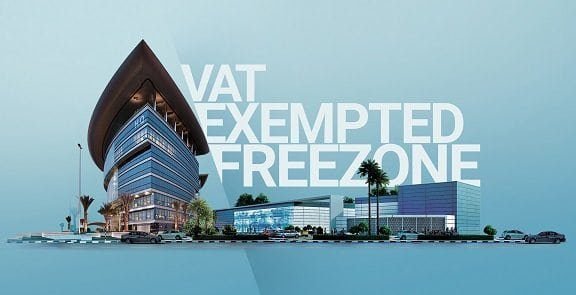
The UAE Cabinet has established these free trade zones to attract international business and foster a culture of compliance among enterprises. Compliance Experts at Tulpar Global Taxation Services are well-versed in the exemption rules details and can guide businesses on the basis of registration threshold and voluntary VAT registering threshold. The cost of energy and the corporation tax rates in these zones are designed to facilitate smooth entry and exit for businesses, thereby enhancing the competitive landscape for foreign enterprise ownership. By understanding the purpose of VAT and its implications, businesses can navigate the VAT implementation process effectively and benefit from the tax advantages available.
It’s essential for companies operating in Designated Zones, such as the Automotive Zone, to stay informed about their compliance obligations and how VAT exemptions can affect their business operations. The landscape of VAT-free businesses is continuously evolving, making it crucial for organizations to engage with experts who can provide insights and strategies for maximizing their tax benefits. Tulpar Global Taxation Services in the UAE offers tailored solutions for businesses in free zones, ensuring they meet their compliance expectations while taking full advantage of the VAT-free status. By partnering with us, companies can confidently navigate the complexities of VAT regulations and focus on their growth in the vibrant UAE market.
Understanding VAT in the UAE
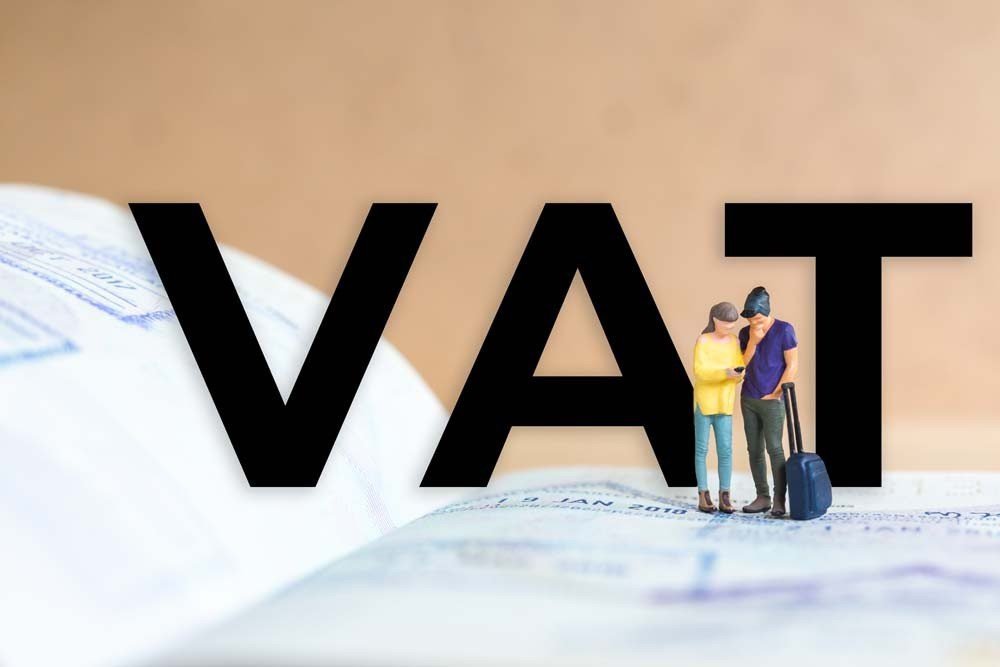
Value Added Tax (VAT) was introduced in the UAE on January 1, 2018, as part of the country’s efforts to diversify its economy and reduce its reliance on oil revenues. The standard rate of VAT is set at 5%, applicable to most goods and services, but there are also excluded and zero-rated supplies that businesses should be aware of. The VAT system is designed to enhance economic growth by providing a steady revenue stream to the government while ensuring compliance with tax laws for businesses operating within the UAE.
Understanding VAT treatment is crucial for companies in UAE, especially those involved in various business activities. The consumption Tax under VAT law requires businesses to accurately account for VAT charged on their sales and the VAT they can reclaim on their purchases. This necessitates reliable accounting services to ensure that businesses maintain compliance with tax regulations.
When it comes to VAT registration, businesses operating within the mainland or designated zones need to be aware of their obligations. Companies wishing to conduct business in mainland areas must register for VAT and charge VAT at the correct rate of 5%. Conversely, those operating in designated free zones may benefit from specific VAT advantages, including the potential for a VAT-free zone where certain transactions may be treated differently.
Distinction Between Regular Free Zones and Designated Free Zones

In the UAE, free zones serve as pivotal hubs for foreign ownership and encourage free trade and economic activity. However, it is essential to distinguish between regular free zones and designated freezones regarding VAT implications. Designated freezones, as outlined in the executive regulation issued in 2017 on value-added tax, are areas where specific VAT rules apply. Within designated zones, businesses may enjoy exemptions from VAT on certain transactions, provided they comply with the requirements set by the UAE VAT system. For example, designated zones are considered outside the scope of UAE VAT for certain supplies, meaning that goods can move within these zones without incurring VAT, thus reducing costs for businesses.
However, businesses operating in regular free zones are subject to the same VAT rules as companies in the UAE mainland. They must account for VAT on standard-rated supplies, charge VAT at the correct rate, and ensure compliance with tax laws, similar to limited companies outside the UAE. Therefore, it is vital for businesses to understand the list of designated zones and the specific VAT treatment applicable to their operations.
To navigate the complexities of VAT in UAE, including the treatment of phase-in for different supplies, companies should consider seeking the assistance of expert auditing services. Tulpar Global Taxation Services offers comprehensive VAT consulting, helping businesses in the UAE understand their VAT obligations, ensuring compliance, and optimizing their tax position. By partnering with a professional firm like Tulpar, businesses can streamline their VAT registering processes and ensure that they are maximizing the benefits available to them under the VAT law.
Overview of Designated Free Zones
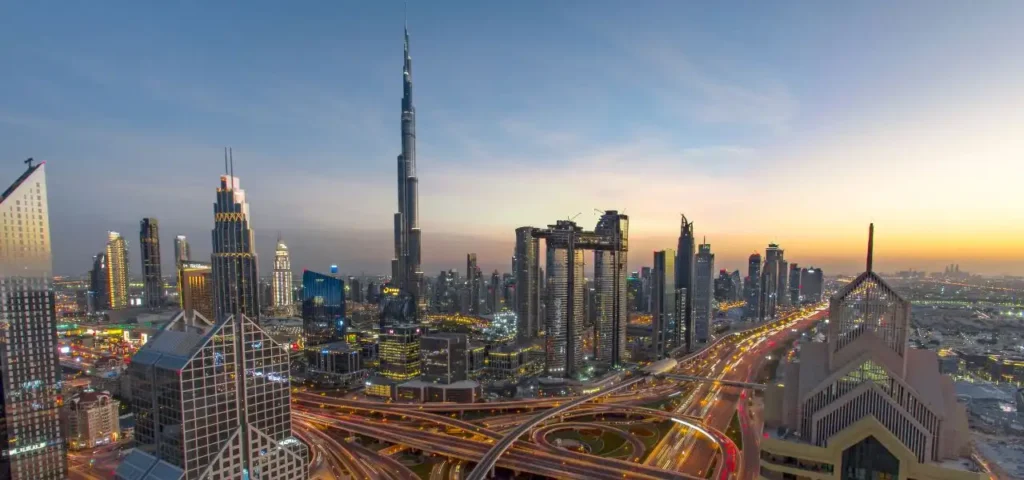
Designated free zones in the UAE are specialized economic areas that provide unique benefits to businesses, particularly in terms of taxation and regulatory flexibility. These zones are specifically designed to foster business communities by attracting foreign investment and encouraging economic growth. One of the key features of designated zones is that certain transactions within these areas can be treated as outside the scope of VAT, providing businesses with significant advantages under the current tax regime.
Free zone companies often enjoy exemptions from duties and other regulatory requirements, making them an attractive option for business setup. Companies operating in designated freezones are subject to specific compliance rules that govern their activities, including VAT return filing and the mandatory threshold for VAT registration based on their business turnover. This means that businesses with a turnover below the mandatory threshold can opt for voluntary registration, which may offer additional benefits under the VAT law.
List of Key Designated Free Zones
Some of the prominent designated freezones include:
- Dubai Airport Free Zone: This zone is strategically located next to Dubai International Airport, facilitating easy access to global markets.
- Aviation City Dubai Airport Free Zone: Focused on aviation-related businesses, this zone supports various aspects of business operations within the aviation industry.
- Khalifa Industrial Zone: Located in Abu Dhabi, this zone caters to manufacturing and logistics companies, providing ample infrastructure and support.
- Jebel Ali Free Zone: One of the largest and most established free zones in the UAE, it is well-known for its logistics and trade capabilities.
These designated zones are designed to enhance the territorial scope of business operations, allowing companies to thrive within a supportive framework.
VAT Exemptions and Their Regulations
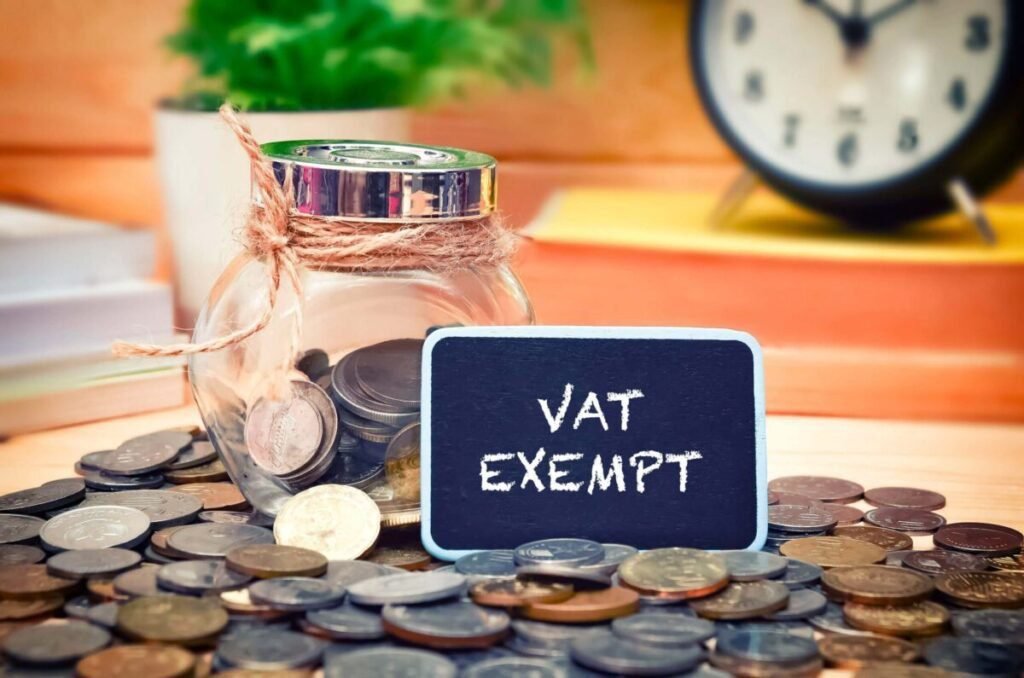
VAT Obligations for Businesses in Designated Free Zones
VAT exemptions play a crucial role in shaping the business landscape in designated free zones. Certain supplies and services, such as educational services and specific goods, may be excluded from VAT, further incentivizing businesses to operate within these areas. Understanding the scope of UAE VAT is essential for companies looking to optimize their tax position and ensure compliance with the regulations set forth by the Federal Tax Authority.
Businesses in designated zones must adhere to compliance rules, including maintaining proper records and filing VAT returns as required. The regulations surrounding VAT exemptions are designed to support the growth of business communities within the UAE, allowing for a more streamlined approach to VAT treatment.
For businesses looking to navigate these complex regulations, partnering with experts in company formation and audit services is vital. Tulpar Global Taxation Services offers specialized assistance, helping businesses understand their VAT obligations and ensuring they are compliant with the scope of the UAE VAT system. With the expertise of business setup advisors at Tulpar, companies can effectively manage their VAT responsibilities while maximizing the benefits available to them under the current tax regime. By understanding the intricacies of designated freezones and the associated VAT regulations, businesses can position themselves for success in the competitive UAE market.
Businesses operating within Designated Free Zones (DFZ) in the UAE must navigate specific VAT obligations to ensure compliance with the VAT framework. Understanding the scope of VAT in these zones is crucial for both designated zone companies and foreign business persons. Tulpar Global Taxation Services offers expert guidance to help businesses meet their VAT service requirements efficiently.
VAT Registration Process
The VAT registering process for businesses in Designated Zones requires companies to determine whether they qualify as a permanent establishment. Businesses with a tax liable turnover exceeding the threshold must apply for VAT registration. This registration is crucial for businesses aiming to pay VAT on their goods & services and claim input credit for their purchases.
To register, businesses must possess a valid business license and submit necessary documentation to the Federal Tax Authority (FTA). Tulpar Global Taxation Services can assist in ensuring all business requirements are met during this process, helping you navigate the complexities of VAT compliance within designated zones.
Reporting Requirements for Businesses
Once registered for VAT, businesses within DFZ must adhere to strict reporting requirements. Companies are required to submit periodic VAT returns detailing their sales and purchases. This includes reporting any zero-rated supplies and maintaining comprehensive records of transactions to comply with VAT in UAE regulations. Exempt businesses in designated zones must also ensure they report their status accurately to avoid any penalties.
How VAT Works Within Designated Free Zones
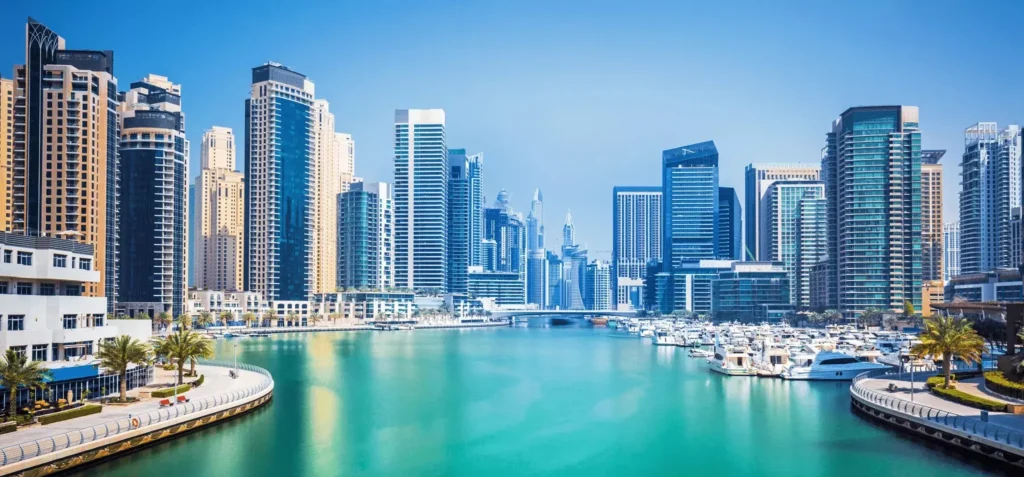
The interaction of VAT within Designated FreeZones is unique, offering various benefits to businesses while also imposing specific obligations. Understanding how VAT works in these zones is essential for maintaining compliance and optimizing business operations.
Treatment of Goods and Services
Within designated zones, the treatment of goods and services is crucial for businesses. Goods imported into DFZ may be subject to zero-rated supplies, while services rendered may be classified differently based on their nature. It’s essential for businesses to understand how these classifications affect their VAT implications and overall business strategy. Tulpar Global Taxation Services provides insights into the treatment of goods and services, ensuring businesses leverage available exemptions.
Interactions Between Free Zones and the Mainland
Businesses must also be aware of the interactions between Designated Zones and the mainland UAE. Non-Designated Zone businesses may face different VAT obligations when trading with entities in designated zones. Understanding these nuances is vital for businesses that aim to expand their operations throughout the UAE. Tulpar Global Taxation Services specializes in guiding companies on how to navigate these interactions, ensuring compliance while maximizing business opportunities in the region.
VAT obligations in Designated Free Zones present unique challenges and opportunities for businesses. By understanding the VAT registering process, reporting requirements, and the treatment of goods and services, companies can optimize their VAT compliance strategies. With the expertise of Tulpar Global Taxation Services, businesses can ensure they meet all obligations while focusing on growth in this dynamic business ecosystem. Whether you’re a designated zone company or a foreign business person, having a team of business specialists by your side is essential for navigating the complexities of VAT in the UAE, including compliance with Anti-Money Laundering (AML) regulations and understanding the implications of corporate tax rates.
Conditions for VAT Exemptions in Designated Free Zones
In the UAE, businesses operating within Designated Free Zones may benefit from specific VAT exemptions under the regulations for VAT. Understanding these conditions is crucial for business owners looking to optimize their tax treatment. VAT exemptions can significantly impact business decisions and overall profitability, making it essential to stay informed about the criteria that govern these exemptions.
To qualify for VAT exemptions in designated zones, businesses must ensure that they operate under the prescribed conditions as per the UAE VAT system. Zones are not subject to VAT for certain activities, particularly those involving zero-rated VAT supplies or the movement of goods transferred between designated zones. The Cabinet decision outlining these exemptions also emphasizes the importance of compliance with the mandatory VAT registering threshold, which applies to tax liable persons with tax liable turnover exceeding the specified limit.
VAT Recovery for Businesses
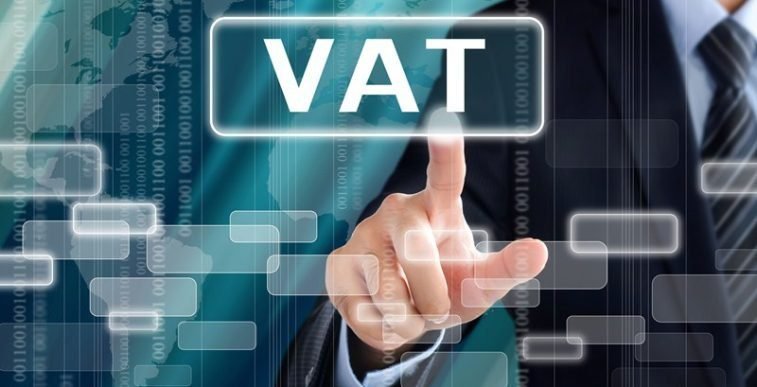
VAT recovery is an essential aspect for businesses operating in designated free zones. Companies can recover VAT incurred on their taxable expenses, providing significant benefits for businesses looking to maintain a cost-effective operation. However, understanding the eligibility criteria and the steps involved in claiming VAT recovery is vital for ensuring compliance with VAT regulations.
Eligibility for VAT Recovery
To be eligible for VAT recovery, businesses must demonstrate that the expenses incurred are directly related to their taxable activities. This includes items such as construction materials and other immovable property used in the course of business. Furthermore, businesses must ensure they are within zones for VAT purposes and adhere to the standard rules set out by the UAE VAT system.
It’s essential to note that businesses with common ownership may have specific considerations regarding VAT recovery, especially when dealing with taxable turnover and the subsequent sale of goods. Tulpar Global Taxation Services can provide expert advice on navigating these complexities and ensuring eligibility for VAT recovery.
Steps for Claiming VAT Recovery
The process of claiming VAT recovery involves several administrative procedures that businesses must follow to comply with the UAE VAT regulations. Here are the key steps:
- VAT Registration Process: Ensure that your business is correctly registered for VAT. This is a prerequisite for claiming VAT recovery.
- Documentation: Maintain accurate records of all taxable expenses, including invoices and receipts for construction materials and other taxable goods.
- Calculate VAT Amounts: Determine the VAT amounts paid on your expenses, ensuring they are related to your taxable activities.
- Submit VAT Returns: Include the claimed VAT amounts in your periodic VAT returns. Ensure that your claims align with the taxable turnover and comply with the standard rate applicable.
- Consultation with Experts: Engaging with a team of business specialists, like those at Tulpar Global Taxation Services, can facilitate a smoother VAT recovery process, helping to identify all eligible expenses and ensuring compliance with all administrative procedures.
By following these steps, businesses can efficiently claim VAT recovery and enjoy the financial benefits associated with operating within the designated free zones of the UAE, including those like the Sharjah Airport International Free Zone and the Dubai Airport Free Zone.
Implications for Cross-Border Trade
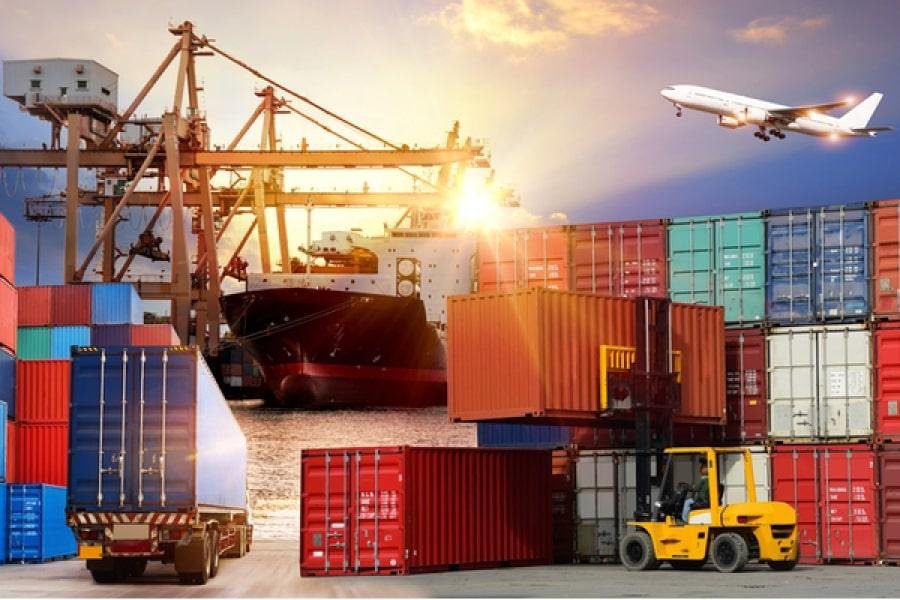
Cross-border trade within the UAE presents unique implications for businesses, particularly those operating in various free zones. Understanding the VAT treatment applicable to these transactions is essential for compliance and optimizing business operations. Tulpar Global Taxation Services can assist companies in navigating these complexities effectively.
Operating from a free zone in UAE, such as the Ajman Free Zone or the Abu Dhabi Free Trade Zone, offers numerous advantages, including tax incentives and simplified business formation. However, businesses must remain aware of how their operations relate to VAT in the UAE, especially concerning cross-border transactions with the mainland.
VAT Treatment of Cross-Border Transactions
Goods and services supplied from a free zone to the mainland are generally subject to VAT unless they qualify for specific exemptions. For instance, zero-rated items—such as certain goods and services—can be exported from a free zone free from VAT, allowing businesses to enhance their competitiveness in international markets.
However, the supply of services from a free zone to the mainland is a key element that requires careful consideration. When a buyer in the mainland purchases services from a business in a free zone, VAT implications may vary. Businesses must be diligent in their registration for VAT, ensuring compliance with regulations to avoid potential penalties.
Business Considerations for Cross-Border Trade
When formulating a business plan that involves cross-border trade, it’s essential to assess the VAT implications on taxable supplies. Businesses must understand how their activities align with UAE tax regulations, including the requirement to submit a VAT return for transactions subject to VAT. Moreover, working with business formation consultants can provide insights into the specific VAT obligations for various activities conducted in different UAE free zones.
Additionally, the movement of goods and services between free zones and the mainland can complicate VAT compliance. Businesses should consider the operational and financial impacts of these transactions, ensuring that they are well-prepared to meet all VAT obligations. Navigating the implications for cross-border trade in the UAE requires a thorough understanding of VAT regulations and their application. Tulpar Global Taxation Services stands ready to assist businesses in ensuring compliance and optimizing their operations in this dynamic market.
List of all 20 Freezones Exempted From VAT
In the UAE, specific free zones have been designated as excluded from VAT, providing businesses with unique opportunities for growth and investment. These exemptions are part of the UAE’s strategy to enhance its business ecosystem, making it an attractive destination for local and foreign investors. Understanding which free zones are excluded from VAT can significantly impact business planning and operations. Here is a list of the 20 free zones exempted from VAT:
- Dubai Airport Free Zone
- Jebel Ali Free Zone
- Sharjah Airport International Free Zone
- Abu Dhabi Free Trade Zone
- Ajman Free Zone
- Fujairah Free Zone
- Ras Al Khaimah Economic Zone
- Umm Al Quwain Free Trade Zone
- Dubai Multi Commodities Centre (DMCC)
- Dubai Silicon Oasis
- Dubai Healthcare City
- Dubai Design District
- Mohammed Bin Rashid Al Maktoum City – District One
- Masdar City Free Zone
- International Free Zone Authority (IFZA)
- Sharjah Media City (Shams)
- Dubai Knowledge Park
- Dubai Science Park
- Hamriyah Free Zone
- RAK Free Trade Zone
These zones are strategically designed to promote business activities while offering significant tax benefits. For businesses operating within these zones, understanding VAT exemptions is crucial to maximizing financial efficiency and compliance with UAE tax regulations.
Importance of VAT Exemption
The VAT exemption in these free zones allows businesses to operate more cost-effectively, making them attractive destinations for both local and international investors. Companies can benefit from reduced operating costs and improved cash flow, as goods and services traded within these zones can be conducted free from VAT.
Partnering with Experts
At Tulpar Global Taxation Services, we understand the complexities surrounding VAT regulations and exemptions in the UAE. Our team of experienced professionals is ready to assist you in navigating the VAT landscape, ensuring compliance, and optimizing your business operations in these VAT excluded free zones. Whether you are looking to establish a presence in one of these zones or need guidance on maintaining compliance, we are here to help you succeed.
Frequently Asked Questions (FAQs)

1. What are the VAT implications for companies in the UAE operating within a designated zone?
Companies operating within a designated zone in the UAE are generally excluded from VAT, provided they adhere to the regulations set by the relevant free zone authority. This exemption applies to the supply of goods and services within the designated zones, allowing businesses to optimize their operations.
2. How does the VAT regime affect international businesses in free zones?
The VAT regime in the UAE provides specific advantages to international businesses operating in free zones, such as the Abu Dhabi Airport Free Zone Khalifa and the Sharjah Hamriyah Free Zone. These businesses benefit from reduced tax liabilities and simplified rules, which can enhance their competitiveness in the global market.
3. Are raw materials used in production subject to VAT in free zones?
In designated zones, raw materials acquired for business purposes are generally excluded from VAT. However, businesses must maintain proper documentation to facilitate input VAT recovery and ensure compliance with VAT rules.
4. What is the reverse charge basis, and how does it apply to businesses in free zones?
The reverse charge basis applies to the supply of goods and services where the VAT liability is transferred from the supplier to the recipient. In free zones, businesses may need to apply this mechanism when dealing with suppliers located in the mainland or other jurisdictions. Understanding this process is crucial for ensuring compliance and managing VAT treatments correctly.
5. How do customs authority and customs control units affect businesses in free zones?
The customs authority and control units play a significant role in regulating trade within and between designated zones. Businesses must adhere to the internal procedures established by these authorities to ensure compliance with customs rules and regulations.
6. What are the compliance requirements for businesses in free zones?
Businesses in free zones must regularly monitor their compliance status with the VAT rules and regulations. This includes maintaining accurate accounts of businesses, ensuring proper record-keeping of business purchases, and submitting VAT returns as required. Employing a tax agent or consultancy service can be beneficial for navigating these compliance requirements effectively.
Conclusion and Best Practices for Businesses in Free Zones
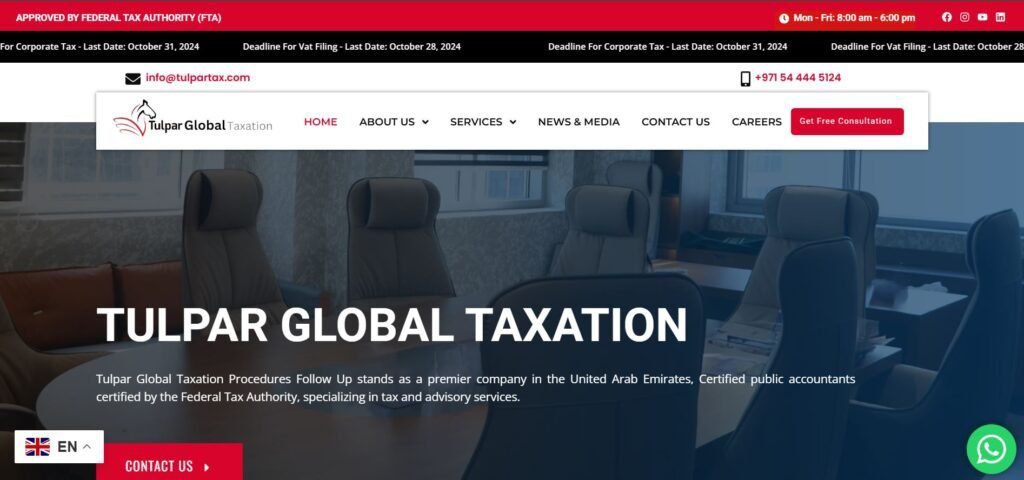
Operating in a free zone offers numerous advantages to companies within the UAE, including Corporate Tax Exemption, streamlined customs processes, and enhanced operational flexibility. To maximize these benefits while ensuring compliance, businesses should follow these best practices:
- Understand VAT Treatments: Familiarize yourself with the specific VAT treatments applicable to your business functions within the designated zone and mainland. Knowing which goods and services are exempt from VAT is crucial for effective tax planning.
- Utilize Professional Expertise: Engage corporate service providers and tax agents like Tulpar Global Taxation Services to help navigate complex VAT regulations and ensure compliance. Their expertise can streamline your processes and reduce the risk of penalties.
- Implement Strong Internal Procedures: Establish robust internal procedures for tracking and documenting business purchases and input VAT recovery. This will help maintain compliance with VAT rules and facilitate smooth operations.
- Stay Updated on Regulatory Changes: Regularly review any changes in VAT regulations and customs_rules that may affect your business operations. This proactive approach will help ensure that your business remains compliant and competitive.
- Invest in Security Measures: Ensure that your business establishments comply with security measures set forth by the free zone authority and the customs authority. This includes safeguarding sensitive data and adhering to regulations related to the import and export of goods.
By adhering to these best practices, businesses can successfully navigate the VAT landscape in the UAE’s free zones, enhancing their operational efficiency and contributing to overall growth. Tulpar Global Taxation Services is here to support your business in achieving compliance and maximizing the advantages offered by the UAE’s dynamic free zone ecosystem.
Designated Zones are Free Zones treated as outside the UAE for VAT purposes on goods, subject to strict conditions. VAT may not apply to the supply of goods within or between these zones. However, services remain taxable in most cases.
No. The exemption applies only to qualifying goods transactions. VAT still applies to services and to goods supplied to the UAE mainland. Proper structuring and documentation are critical.
Dubai
Jebel Ali Free Zone (JAFZA)
Dubai Airport Freezone (DAFZ)
Dubai South
Dubai Textile City
Gold and Diamond Park
Abu Dhabi
Khalifa Industrial Zone Abu Dhabi (KIZAD)
Abu Dhabi Airport Free Zone
Sharjah
Hamriyah Free Zone
Sharjah Airport International Free Zone (SAIF Zone)
Ajman
Ajman Free Zone
Umm Al Quwain
Umm Al Quwain Free Trade Zone
Ras Al Khaimah
RAKEZ – Ras Al Khaimah Economic Zone
Fujairah
Fujairah Free Zone
Specialized / Industrial Zones
Dubai Cars and Automotive Zone (DUCAMZ)
Dubai Flower Centre
Dubai Logistics City
Dubai Aviation City
Abu Dhabi Ports Free Zone
International Humanitarian City
Dubai CommerCity
VAT may not apply when goods are:
Supplied within the same Designated Zone
Transferred between Designated Zones
Stored under customs control
Not released for mainland consumption
VAT does apply when:
Goods move to the UAE mainland
Services are provided (rent, consulting, management, etc.)
Conditions for designated treatment are not met
Common reasons include misunderstanding the exemption, incorrect invoicing, and lack of customs documentation. Many businesses wrongly assume Free Zone = VAT-free, which is incorrect.
Due to complexity, professional VAT review is essential. Working with Tulpar Global Taxation helps businesses correctly apply VAT exemptions, avoid penalties, and stay FTA-compliant.
No, businesses operating in Designated Zones may still be required to register for VAT if they meet the registration threshold. VAT registration depends on taxable turnover, not location alone. Many Designated Zone companies are fully VAT-registered.
VAT invoices must clearly reflect whether VAT is charged or not and mention the applicable VAT treatment. Incorrect invoicing is a common reason for FTA penalties. Proper invoice wording is critical for Designated Zone transactions.
Businesses should regularly review transaction flows, customs documentation, and VAT reporting. Due to the complexity of Designated Zone rules, professional VAT guidance is strongly recommended. Working with Tulpar Global Taxation helps businesses remain compliant and penalty-free.
